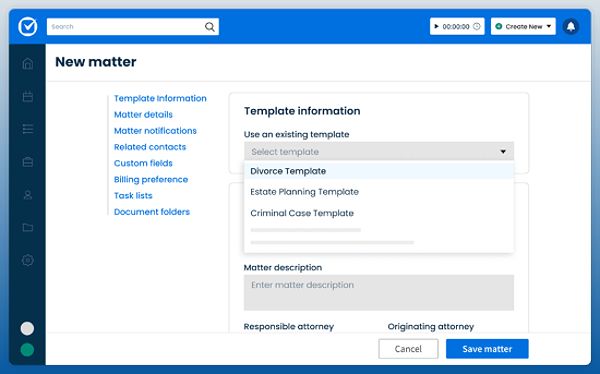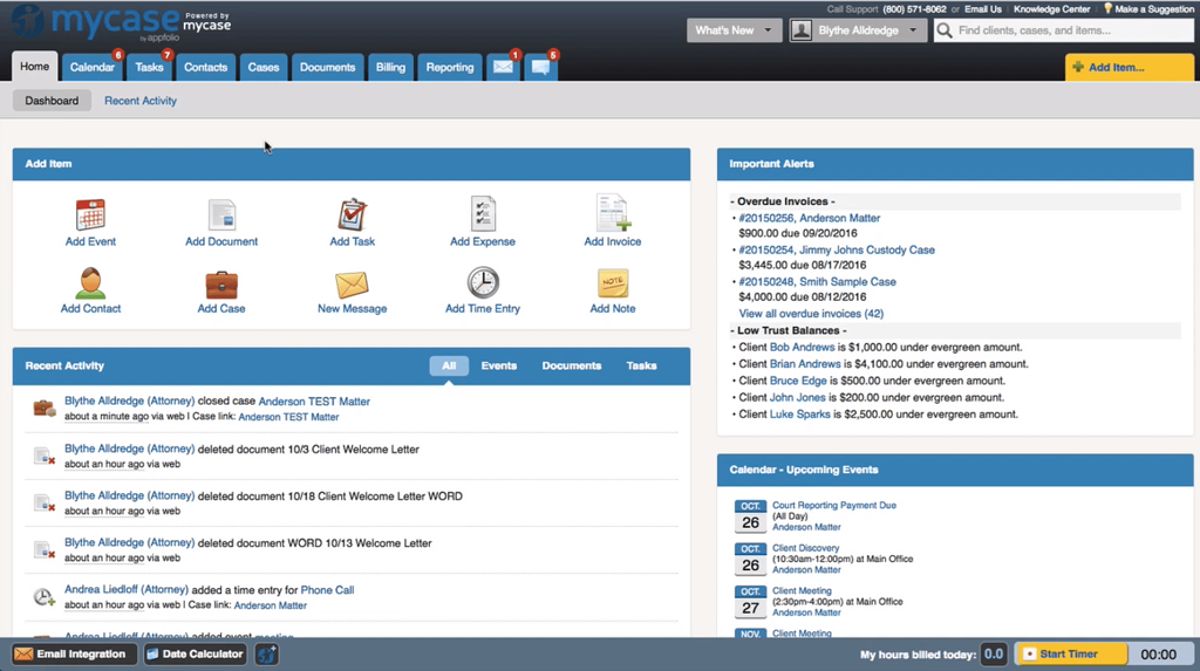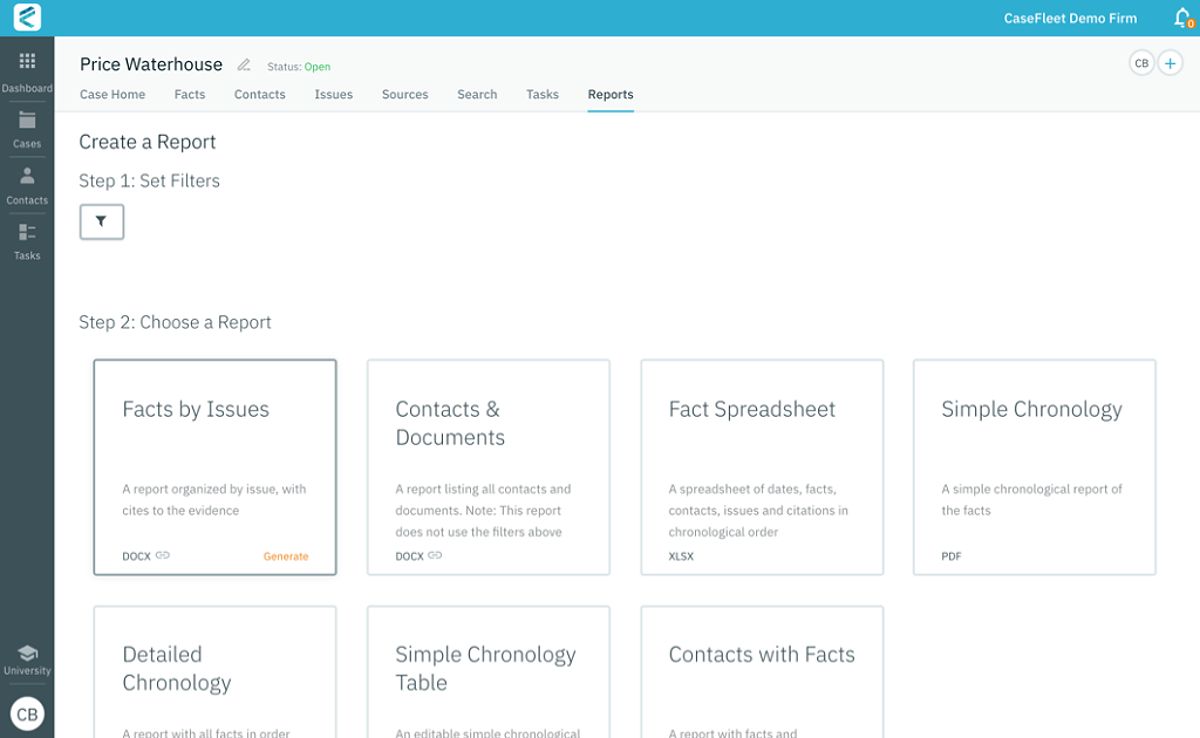Discover how law office case management software can transform your law firm’s operations, boost productivity, and improve client satisfaction. Explore the key features and best practices to select the right solution for your practice.
Toc
- 1. Unlocking the Power of Law Office Case Management Software
- 2. Understanding the Advantages of Law Office Case Management Software
- 3. Key Features of Effective Law Office Case Management Software
- 4. Related articles 01:
- 5. Choosing the Right Law Office Case Management Software for Your Firm
- 6. Best Practices for Utilizing Law Office Case Management Software
- 7. Related articles 02:
- 8. Frequently Asked Questions
- 9. Conclusion
Unlocking the Power of Law Office Case Management Software
It’s a common misconception that law firms are all about courtroom drama. The reality is that much of their time is spent on administrative tasks. This is where law office case management software shines, automating routine processes like billing and document management, freeing up lawyers to focus on core legal work.
In today’s fast-paced legal landscape, law firms face increasing pressure to deliver exceptional service while managing costs and improving operational efficiency. Law office case management software emerges as a vital tool in achieving these goals. This comprehensive solution not only streamlines workflows but also enhances communication and boosts overall productivity.
Understanding the Advantages of Law Office Case Management Software
Law office case management software is a game-changer in the legal industry, offering a centralized platform to manage the complexities of legal workflows. By consolidating critical client and case-related data, these powerful tools can streamline various aspects of legal practice, including document management, communication, time tracking, and billing.
Increased Efficiency and Productivity
By automating repetitive tasks and centralizing critical information, law office case management software can significantly boost the efficiency and productivity of your law firm. For example, many case management systems offer automated document generation capabilities. Instead of manually drafting routine letters, agreements, or discovery requests, lawyers can use templates and pre-populated fields to create documents quickly and accurately.

Centralized case management systems allow for seamless collaboration among team members. Attorneys can access all relevant documents, notes, and deadlines from a single platform, eliminating the need for email chains or shared drives. A recent study found that firms using case management software reported an average increase of 20% in billable hours, allowing them to maximize their time and achieve greater profitability.
The ability to automate client intake processes, manage tasks, and track deadlines means that lawyers can spend less time on administrative duties and more time on what they do best—practicing law. For instance, automated reminders for upcoming deadlines can prevent costly oversights, thereby ensuring that cases progress smoothly without unnecessary delays.
Reduced Costs and Improved Profitability
In addition to enhancing efficiency, law office case management software can also help law firms reduce administrative costs and improve overall profitability. Law office case management software often integrates with accounting software, allowing for seamless transfer of time entries and expense records. This automation eliminates manual data entry, reduces the risk of errors, and ensures accurate and timely billing.

By automating tasks like invoicing and expense tracking, firms can cut down on the resources needed for these non-billable activities. Furthermore, the improved organization and streamlined workflows can lead to a reduction in errors and missed deadlines, ultimately driving down the costs associated with rework and client dissatisfaction.
Consider how traditional billing processes, which often involve manual entry and calculations, can lead to errors that are costly to rectify. Law office case management software minimizes these risks by automating billing and invoicing, ensuring that clients are billed accurately and promptly.
Enhanced Client Satisfaction
Clients today expect a high level of responsiveness, transparency, and personalized service from their legal providers. Law office case management software equips law firms with the tools to deliver an exceptional client experience. Client portals allow clients to access their case files, track progress, and communicate securely with their attorneys. This level of transparency fosters trust and empowers clients to be more actively involved in their legal matters.

Features like secure client portals, automated updates, and seamless communication channels can help build trust, improve client engagement, and solidify your firm’s reputation in the industry. This enhanced client satisfaction can lead to increased referrals and repeat business, further contributing to the overall profitability of your law firm.
Key Features of Effective Law Office Case Management Software
When evaluating law office case management software, it’s essential to look for solutions that offer a comprehensive set of features to streamline your firm’s operations.
Case Management and Workflow Automation
Efficient case management is the backbone of a successful law practice. Leading law office case management software solutions offer features like automated client intake, matter management, task assignment, and deadline tracking, ensuring that no detail is overlooked and your workflows are optimized for maximum productivity.
1. https://law.tik.black/personal-injury-law-firm-jacksonville/
2. https://law.tik.black/las-vegas-injury-law-firm/
3. https://law.tik.black/injury-law-firm-nyc/
For instance, an effective case management system allows for the easy assignment of tasks to team members, with automated notifications and reminders that keep everyone accountable. This level of organization is crucial in preventing tasks from falling through the cracks and ensuring that all deadlines are met.
Secure Document Management
Legal professionals handle a vast array of sensitive documents, and the security of these files is paramount. Look for law office case management software that provides robust document management capabilities, including version control, secure file sharing, and compliance with industry regulations. By centralizing your documents in a cloud-based platform, you can safeguard your data while enabling seamless access and collaboration for authorized personnel.

Security features such as data encryption and multi-factor authentication further protect sensitive client information, ensuring compliance with legal and ethical standards.
Communication and Collaboration Tools
Effective communication and collaboration are essential in the legal field. Law office case management software often includes integrated communication features, such as email integration, secure messaging, and client portals. These tools facilitate seamless information exchange between lawyers, staff, and clients, ensuring everyone stays informed and aligned throughout the legal process.
By streamlining communication, law firms can reduce misunderstandings and improve overall client satisfaction. For example, integrated messaging tools allow team members to quickly share updates on a case without relying on lengthy email threads.
Time Tracking and Billing
Accurate time tracking and billing are crucial for the financial health of any law firm. Law office case management software typically includes features that automate these processes, such as automatic time capture, expense tracking, and invoicing. By streamlining these administrative tasks, law firms can improve billing accuracy, increase revenue, and reduce the burden on their teams.

With the ability to track time spent on specific tasks directly within the case management system, lawyers can ensure that they are capturing all billable hours, leading to improved profitability.
Reporting and Analytics
Data-driven decision-making is becoming increasingly important in the legal industry. Look for law office case management software that provides robust reporting and analytics capabilities, enabling law firm owners to gain valuable insights into their firm’s performance. From customizable reports to intuitive dashboards, these features empower you to make informed decisions, identify areas for improvement, and optimize your firm’s operations.
Analytics can reveal trends in billing, case outcomes, and client engagement, providing a clearer picture of where your firm stands and where improvements can be made.
Choosing the Right Law Office Case Management Software for Your Firm
When selecting a law office case management software solution, it’s essential to consider your firm’s specific needs, including its size, practice area, and technological requirements. Factors such as ease of use, integration capabilities, and vendor support should also play a crucial role in your decision-making process.
Identify Your Firm’s Specific Needs
Understanding the unique requirements of your firm is the first step in selecting the right software. Consider factors such as the size of your firm, the types of cases you handle, and your budget. For example, a solo practitioner may have different needs compared to a large multi-partner firm.
Evaluate Key Features and Functionalities
Compare different software solutions based on their case management, document management, communication, time tracking, and reporting capabilities. Look for features that align with your firm’s workflows and enhance productivity.
Consider Ease of Use and Integration
Choose software that is user-friendly and integrates seamlessly with existing systems. A complicated interface can lead to frustration and hinder adoption among staff. Additionally, ensure that the software can easily integrate with other tools your firm uses, such as accounting software or email systems.
Research Vendor Reputation and Support
Select a reputable vendor that offers excellent customer support and training resources. Read reviews, seek recommendations, and consider reaching out to other law firms for their experiences with different vendors.
Explore Popular Options
Research and compare popular law office case management software solutions, including Clio, MyCase, and PracticePanther. These platforms offer a wide range of features, from robust case management and document automation to comprehensive billing and reporting tools. It’s important to thoroughly evaluate the capabilities of each solution and how they align with your firm’s goals and workflows.
Best Practices for Utilizing Law Office Case Management Software
To truly unlock the full potential of your law office case management software, it’s crucial to adopt best practices that will help you maximize efficiency and enhance client relationships.
1. https://law.tik.black/best-injury-law-firm/
2. https://law.tik.black/law-offices-of-jacob-emrani/
3. https://law.tik.black/lemon-law-attorney-san-diego/
Maximizing Efficiency
Utilize the software’s automation features to streamline repetitive tasks, such as document generation and invoice creation. Leverage the reporting and analytics capabilities to identify areas for improvement and make data-driven decisions to optimize your firm’s workflows.
Building Strong Client Relationships
Leverage the communication tools within your law office case management software to keep clients informed and engaged throughout the legal process. Utilize the client portal features to facilitate secure file sharing, schedule appointments, and provide personalized updates, fostering a stronger sense of trust and collaboration with your clients.
Training and Support
Invest time in training your staff on how to use the new software effectively. Provide comprehensive training sessions that cover the software’s core features and functionalities. Encourage hands-on practice and create a supportive environment where staff can ask questions and share tips. Appoint “power users” within your firm who can serve as internal champions, providing ongoing support and guidance to their colleagues.
Frequently Asked Questions
Q: What is the difference between law office case management software and law firm practice management software?
A: While both types of software are designed to streamline legal operations, the main distinction lies in their focus. Law office case management software primarily focuses on managing the lifecycle of individual legal cases, including tasks, deadlines, and documents. In contrast, law firm practice management software takes a broader approach, encompassing the overall administration and business operations of a law firm, such as accounting, human resources, and firm-wide reporting.
Q: How can I ensure that the law office case management software I choose is secure and compliant with legal regulations?
A: When evaluating law office case management software solutions, pay close attention to their data security features and compliance with industry regulations, such as the American Bar Association’s ethical guidelines. Look for features like multi-factor authentication, data encryption, and secure client portals. Additionally, consider the software vendor’s commitment to data privacy and their track record of maintaining the confidentiality of sensitive legal information.
Q: What are the best ways to train my staff on using new software?
A: Effective training is crucial for the successful adoption of new law office case management software. Start by providing comprehensive training sessions that cover the software’s core features and functionalities. Encourage hands-on practice and role-playing exercises to help your staff become comfortable with the new tools. Additionally, consider appointing “power users” within your firm who can serve as internal champions and provide ongoing support and guidance to their colleagues.
Q: What are some common mistakes to avoid when implementing law office case management software?
A: Some common mistakes to avoid include failing to involve key stakeholders in the selection process, overlooking the importance of data migration and integration, underestimating the time and resources needed for implementation, and neglecting to provide adequate training and support for your staff. It’s also crucial to ensure that the software you choose aligns with your firm’s specific needs and workflows, rather than trying to adapt your processes to fit a generic solution.
Q: How can I measure the return on investment (ROI) of my law office case management software?
A: Measuring the ROI of your law office case management software investment can be done by tracking key performance indicators (KPIs) such as increased billable hours, reduced administrative costs, improved client satisfaction scores, and enhanced overall firm productivity. Additionally, you can compare your firm’s financial metrics before and after the software implementation to quantify the direct impact on your bottom line.
Conclusion
Law office case management software has emerged as a transformative tool for law firms looking to streamline their operations, reduce costs, and enhance client satisfaction. By leveraging the power of centralized data management, workflow automation, and robust reporting capabilities, law firm owners and partners can unlock new levels of efficiency and profitability within their practices.
As you embark on your journey to implement law office case management software, remember to carefully evaluate your firm’s specific needs, choose a solution that aligns with your workflows, and ensure a smooth implementation and comprehensive training for your staff. By embracing this powerful technology, you can position your law firm for long-term success in the ever-evolving legal landscape.













